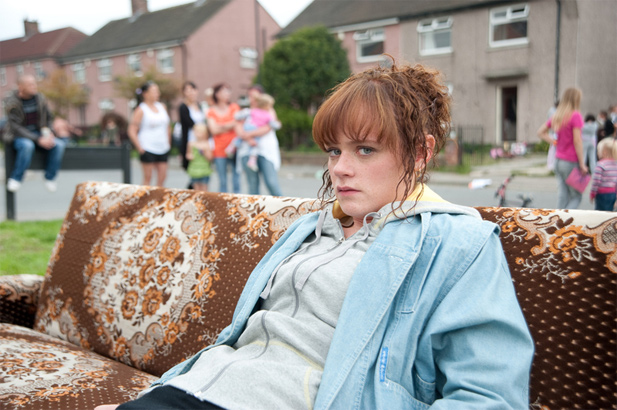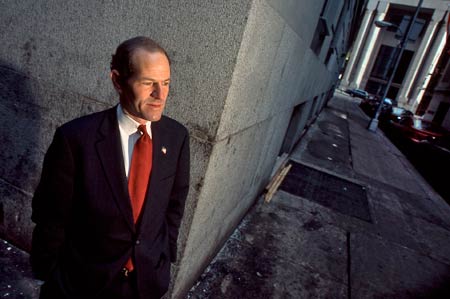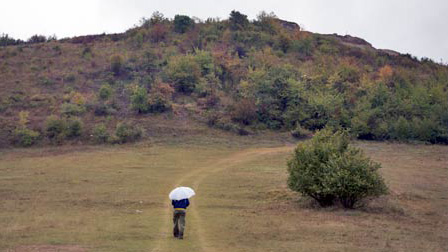
Reviews: Documentaries from The Tribeca Film Festival
Documentaries are always a reliable strength at the Tribeca Film Festival. This year, they are led by what might be called The Alex Gibney Show. Gibney, who won an Academy Award for his 2007 film, Taxi to the Dark Side, about the treatment of prisoners in the War on Terror, is premiering three films in the festival.
My Trip to al-Qaeda is a portrait of the journalist Lawrence Wright, who turned his influential book, The Looming Tower: Al Qaeda and the Road to 9/11, into a stage performance in New York. Praised when Wright performed the “play” in Manhattan, the work benefits from Gibneys expansion of it into a collage that includes archival footage and interviews with radical Islamists who have become Wrights sources. Be prepared for a strange experience. Onstage, the earnest Wright bears an eerie resemblance to Tom DeLay, the former House Majority Leader who is one of the villains of Casino Jack and the United States of Money, a (fourth) film by Gibney about Jack Abramoff and political corruption which opens in a few weeks. Is there something we dont know?

Eliot Spitzer
Untitled Eliot Spitzer Film examines the rise and fall, and potential political resurrection of Eliot Spitzer, the former Governor of New York State whose campaigns against the misdeeds of Wall Street ended when he resigned amid a sex scandal two years ago. The film is being shown as a work in progress without a listed running time. With Spitzers return to politics now a real possibility – as opposed to a dream in the disgraced governors head – work in progress seems the right term. Abramoff did not speak to Gibney on camera, but Spitzer did.

"Freakonomics" (Magnolia Pictures)
In Freakonomics, the festivals closing night film, Gibney collaborates with five other documentarians (including Morgan Spurlock of Super Size Me and Eugene Jarecki of The Trials of Henry Kissinger) in the adaptation of the best-selling contrarian guide to economics. Anything about economics these days might also be called a work in progress.
Tribecas non-fiction range is broad this year extends to the Middle East, no surprise for a festival with an outpost on Doha (Qatar). Just Like Us is the world premiere of the directorial debut of Ahmed Ahmed, the veteran Egyptian-American comedian who has led a stand-up comedy tour from Dubai to Saudi Arabia, Lebanon and Egypt, and filmed the performances before Arab audiences. (Ahmed Ahmed has also performed for US troops.) It would be an understatement to call this project an attempt to cross boundaries of taste.

scene from "Earth Made of Glass"
In Earth Made of Glass, director Deborah Scranton (The War Tapes, 2006) travels to Rwanda to witness the aftermath of the 1994 genocide with two men: Jean Pierre Sagahutu, the son of a murdered doctor who tracks down ordinary men who witnessed his fathers killing, and Rwandas president, Paul Kagame, who slowly and cautiously rebuilds relations with the rest of the world, including countries that had fought to keep him from taking power. Its a lesson in compromise.

The Two Escobars
Violence-torn Colombia is the setting of The Two Escobars by Jeff Zimbalist and Michael Zimbalist, who examine two men, born the same day – one a drug lord and the other a football star on Colombias national team. Their film takes us back to 1994, when the rise of the Colombian team threatened to displace the dominant stereotype of the country as a drug-gangster regime.
American gangsters from the 1980s and 1990s are revisited in Straight Outta L.A., the directorial debut of Ice Cube. His film, all of 51 minutes produced for ESPN, is a hymn to the Los Angeles of that time, and to the marauding football team that united rappers and gangbangers, the Los Angeles Raiders. Ice Cube was a founder of N.W.A., the rap group whose hits, Straight Outta Compton and Fuck Tha Police, epitomized the tension in Los Angeles then. He and his posse were, incase you havent guessed, huge Raiders fans. Archival footage reminds you that rappers and gangsters wore the black and silver colors of the swaggering raiders (as did all the kids who admired them), and that the NFL made billions from the sale of that wardrobe. Who says that athletes cant be role models?

Buried Land
Tribeca this year is at its most innovative with hybrid films that defy categorization. In the World Narrative Feature Competition, Buried Land by Geoffrey Alan Rhodes and Steven Eastwood (no relation to Clint) looks like a documentary. Yet it wanders into what seems like fiction as it explores the notion that land formations in Bosnia might be ancient pyramids from a civilization that predates anything in Egypt. Bosnians werent sure what to make of the film – some tried to launch a tourist industry around pyramid fever. Some denounced Buried Land as a new Borat intended to embarrass them.
In The Arbor, (top) named for a grim housing estate in Bradford England where the playwright Andrea Dunbar (1961-90) lived with her daughter Lorraine, director Clio Barnard blends fiction and non-fiction in the story of a troubled family. Actors lip-synch testimony about Dunbar, who rose to success as an author, but couldnt rise above her surroundings and addiction. The experiment will take some adjustment for the audience, yet emotions it touches can be as raw as those in any drama.
